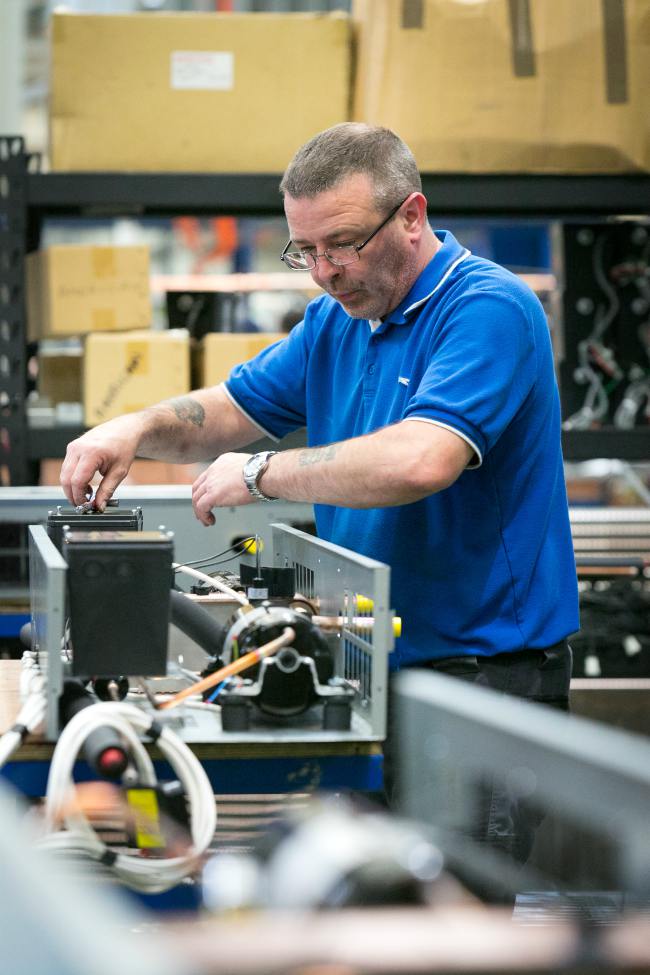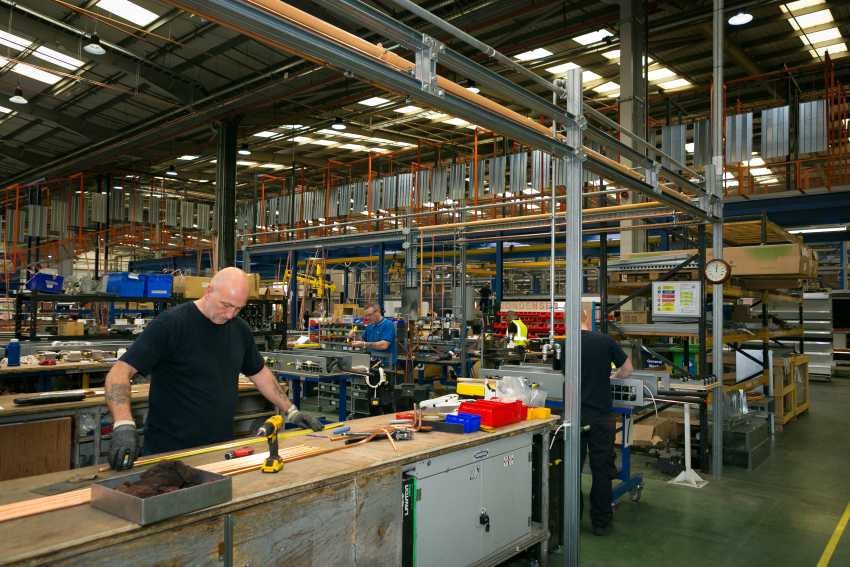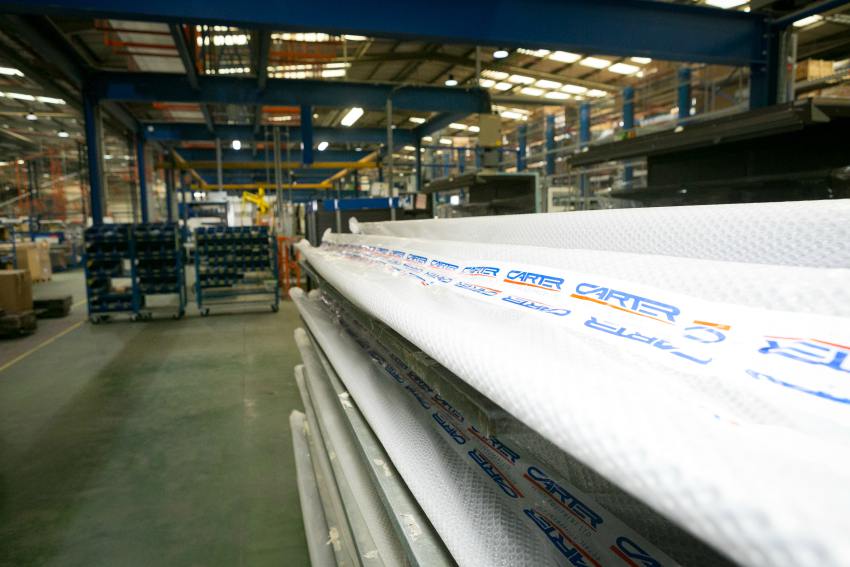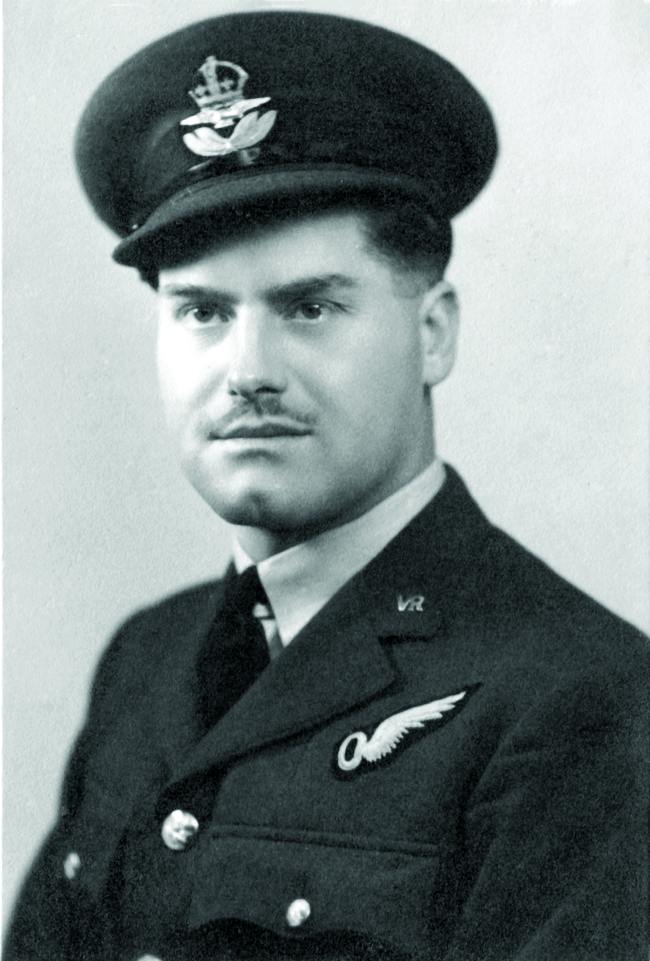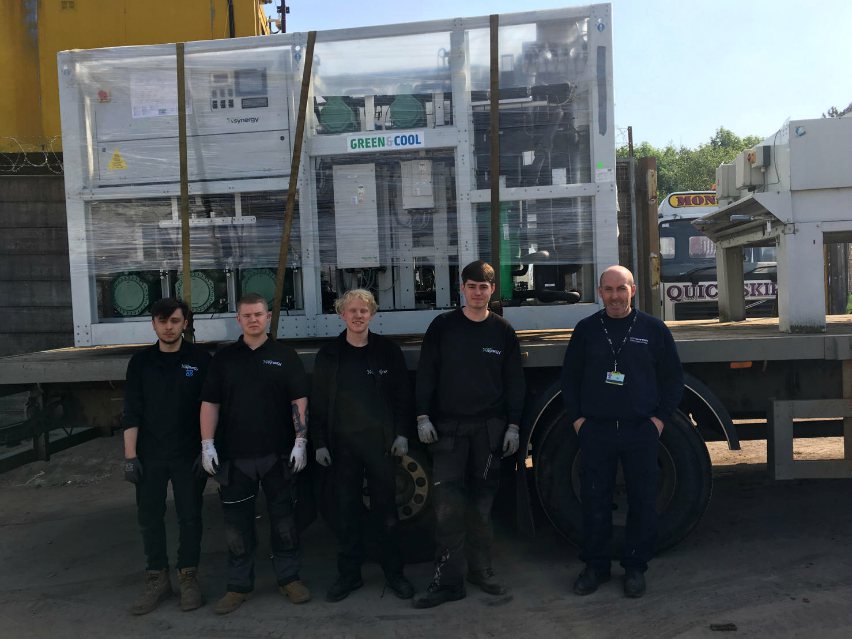13 August 2019
|
The Carter Thermal Industries Group has consolidated its Birmingham operations into one site. David Todd joined customers, guests and ex-employees to find out more.
Even a brief look through the Carters archives reveals plenty of evidence that this is a business which has never been afraid of change. The 74-year history of the Carter Thermal Industries Group – to give it its full title – is punctuated with examples of acquisitions, mergers and innovation.
Even a brief look through the Carters archives reveals plenty of evidence that this is a business which has never been afraid of change. The 74-year history of the Carter Thermal Industries Group – to give it its full title – is punctuated with examples of acquisitions, mergers and innovation.
|
When Carters built a new factory 15 years ago, the long-term goal was always to consolidate the group’s businesses into a single site. That vision has now become reality as Carter Synergy and Carter Environmental Engineers (CEE), plus head office staff, take up residence alongside Carter Retail Equipment at Lea Ford Road.
The consolidation allows the closure of the sites at Redhill Road, previously home to head office and Carter Synergy, and Hamilton House, which housed CEE, and the company hosted an open day for customers, guests and ex-employees to mark the beginning of the next chapter of the Carters story. Group chairman John Scott said: “We built Lea Ford Road as a specialist factory for case manufacturing and the objective was always to move the rest of the group, chiefly Carter Synergy and CEE, onto this site. The big question was did we need to build a complete new office block or could we fit the people into the existing space? Thankfully the planning highlighted we could move into the existing space which we decided to proceed with around Christmas 2018. Significant expansion “We then got some senior people at Carter Retail Equipment (CRE) and CEE to say what we could move into Lea Ford Road. Our priority was always that we didn’t let our customers down. Whatever we do cannot mean that we miss a delivery of a case, an engineering project or a cooling tower.’’ The service desk has been consolidated, with a significant expansion establishing Glasgow as the principal call desk, with a smaller operation at Lea Ford Road. There has also been a concerted push to keep contract engineers on. In addition, the dust extraction arm of CEE was recently sold to fellow Midlands manufacturer, Filtermist. Even so, Carter Synergy managing director Chris Hufflett estimates the move has still seen close to 100 people moving to Lea Ford Road, either in the new open-plan office block or the factory itself, along with heavyweight equipment including a laser unit, welding bays for CEE and Franklin Hodge Industries, plus fabricating kit. As any recent visitor to Birmingham can testify, the city is currently undergoing significant changes and the level of development has had an indirect benefit for Carters. John Scott explained: “We had been negotiating on the properties and we are lucky that Birmingham is going through something of a renaissance at the moment and Hamilton House is within half a mile of the new HS2 station. “From a cost point of view, having everything on one site puts us in a better position and generates cash but the move is about more than that; it's about breaking down internal barriers. The physical location is so important to being part of the same team. "We now have a world-class facility for manufacturing, development and testing alongside all of our engineering, administration and leadership teams. Bringing together all these key elements means we are all more integrated and have a clear purpose and direction. Big opportunities “Another good example is with Justin Southwick. He was previously on the group and Carter Synergy side of the business and was responsible for new business, particularly for non-retail projects. Essentially he was purchasing the cold store fabric from CRE and pulling the engineering and service support from Carter Synergy. Now he is in charge of our cold store division, whether it's engineering or the fabric. It used to be that Justin was at one end of Redhill Road, the contracting department was at the other end, and the cold store fabric people were here (at Lea Ford Road). Just having them all together makes such a difference and I believe the people involved get a buzz and feel more integrated into the whole process. “If you ask people about Carter Coldstores they immediately associate us with the retail sector. However we are doing more and more large-scale projects which is quite exciting. Historically, the big industrial cold stores have used ammonia but now, more and more, trans critical CO2 is taking its place. We are pushing that through our partnership with Green & Cool. CO2 started in main store supermarkets and now goes all the way from the convenience sector upwards to distribution / warehousing and that is very exciting for us. In August of 2017, for example, Carter Synergy delivered a world first with the installation of a Green & Cool rotary pack solution for the Tesco Express store at Shaw. “Moving forward we are currently working on a project which has seen us partner with our client Ornua Foods, Armstrong Fluid Technology & Green & Cool to deliver an exciting HFC replacement solution for their process chillers.’’ There are growing opportunities, also, in the export market. From “a couple of million in 2016’’ overseas sales will probably make up around 15% of the business this year. America is by far the biggest market, but Carter Retail also sells to Australia and Ireland. John Scott noted: “We are seeing that the American supermarket business is going through a fundamental change. We have always associated them with the huge out-of-town places with big freezers. We are seeing a movement, as we have seen in the UK, to a small store format. Target, for example, have a major programme of small format stores bespoke to the locality. Similarly, HEB in Texas is also undergoing a refresh of their stores and really altering the look & feel of the space they have. “For the last five years most of our business has been with low GWP refrigerants. America is a long way behind in some areas but some of these supermarket chains are looking to go green. They want the look, feel and quietness that we can deliver with our cases, and they appreciate our levels of customer service. New markets “The route we have taken in the UK is really important because it puts us in a great place. We had a great standard range of cases which we have be able to adapt to individual customer and market requirements. Our focus this year, with our five test labs, is on how we can further develop our standard range and ensure it’s the most energy efficient case on the market. That is critically important to the UK market but it is important for our export markets as well. “Our exports complement our UK sales, giving us essential economies of scale. We are aware there are very few UK-only suppliers left. We have to export but you can only do that if you are doing things right for your home market. Our exports have only been possible because of what we have done in the UK and we always have our home market in focus.” The group employs around 920 people and turnover last year was £130 million, with the supermarket sector accounting for around 70-80% of that business and a pretty even split between service, cabinets and contracting. “Supermarket refrigeration is the heart of our business,’’ said John Scott. “We have diversified into new markets, into industrial, but we have to be the UK supermarkets' preferred refrigeration company. Preferred doesn't mean we are the biggest but I want it to be that whoever thinks of cabinets, coldstores, contracting, design, packs… they think of us first. “The trigger for this open day was the consolidation. There were a lot of people in the room who spent most if not all of their working life at Carters and some of it was about giving them respect for the part that they have played. Our people have always been a key part of what we do and how we perform. “I have always assumed that the customers and employees knew what we did, but that’s not always the case. People are genuinely surprised by how big and how diverse we are. "Looking through the literature to put something like this together, it's hard not to be nostalgic, but the message is that we have always changed.’’ |
Carter Thermal Industries Group
Carter Synergy
Lea Ford Road, Birmingham;
Liverpool, London
Formed by the merger of Carter Refrigeration & Retail Services and Carter Planned Maintenance. Design, project management, installation, and service/maintenance of refrigeration, air conditioning, mechanical, electrical and other core building services.
Carter Retail Equipment
(including Carter Coldstore Systems)
Lea Ford Road, Birmingham
Refrigerated display cabinets and cold room solutions
KB Refrigeration
Glasgow, Inverness
Refrigeration, air conditioning and M&E designers and installers covering Scotland and north of England. Sister company of Carter Synergy.
CPC (UK)
Egham, Surrey
Leak detection, controls, system optimisation and energy use reduction
Carter Environmental Engineers
Lea Ford Road, Birmingham
Manufacturer of water cooling towers, outsourced sheet metal fabrication
Franklin Hodge Industries
Hereford
Manufacturer of bulk storage tanks
Lea Ford Road, Birmingham;
Liverpool, London
Formed by the merger of Carter Refrigeration & Retail Services and Carter Planned Maintenance. Design, project management, installation, and service/maintenance of refrigeration, air conditioning, mechanical, electrical and other core building services.
Carter Retail Equipment
(including Carter Coldstore Systems)
Lea Ford Road, Birmingham
Refrigerated display cabinets and cold room solutions
KB Refrigeration
Glasgow, Inverness
Refrigeration, air conditioning and M&E designers and installers covering Scotland and north of England. Sister company of Carter Synergy.
CPC (UK)
Egham, Surrey
Leak detection, controls, system optimisation and energy use reduction
Carter Environmental Engineers
Lea Ford Road, Birmingham
Manufacturer of water cooling towers, outsourced sheet metal fabrication
Franklin Hodge Industries
Hereford
Manufacturer of bulk storage tanks
Content continues after advertisements
Carters milestones
|
1945: Company founder John Carter, pictured, the grandfather of current group chairman John Scott, served as a squadron leader in the RAF during World War 2. He was awarded the Distinguished Flying Cross and was later held as a POW in Germany, before returning home to Birmingham where he established Carter Refrigeration & Air Conditioning.
1949: Carters moved to new premises with 6,000 sq ft of space for manufacturing cold rooms and display cases. Midland Heating and Ventilation acquired. 1959: Carter Thermal Industries formed as a holding company for Carter Refrigeration & Air Conditioning, Carter Refrigeration Display, Carter Thermal Engineering and Midland Heating and Ventilation. 1959: Developed first true self-service cabinet design, with angled mirror. Moved to new premises for increased capacity. 1964: Pioneered use of composite materials such as metal, timber and polystyrene. Production facilities increased to 60,000 sq ft. 1969: Full International range of cases developed. 1980: Acquired Westgate Refrigeration, Cardiff, manufacturers of service refrigerators and display counters. 1983: Carter Planned Maintenance formed. 1988: Acquired Walker Refrigeration to extend coverage in North West. 1992: Creation of CPC (UK), sales and support of refrigeration controls and refrigerant leak detection. 1996: Manufacturing and contracting split into Carter Refrigeration & Retail Services, and Carter Retail Equipment. 1997: CPC (UK) brings infra-red leak detection to UK. 1999: Acquisition of KB Refrigeration in Scotland. 2004: 140,000 sq ft Lea Ford Road factory and test facility built. 2004: Acquisition of Franklin Hodge Industries. 2007: Carter Refrigeration & Retail Services and Carter Planned Maintenance merged to form Carter Synergy. 2013: Partnership established with Swedish CO2 equipment manufacturer Green & Cool. 2016: Contract to supply Target stores across US. 2019: Consolidation of Birmingham operations at Lea Ford Road. |
Support for Glasgow Kelvin College
Earlier this year a joint piece of work between KB Refrigeration and Carter Synergy resulted in an impressive range of support for Kelvin College in Glasgow.
It had previously not been possible to undertake CO2 refrigeration training in Scotland or the north of England. Tony Deith, CO2 training manager at KB Refrigeration, arranged for several of the senior staff and lecturers from Kelvin College to attend a bespoke training session at the Carter Synergy training facilities at Redhill Road. Gary Downes delivered the training and all three attendees from the college were brought up to the required standard.
Liam Noble, head of the refrigeration department at Kelvin College, said: “I would like to thank KB Refrigeration and Tony Deith for organising the CO2 training at Carter Synergy headquarters in Birmingham. I hope that the special relationship that we have with KB Refrigeration continues to grow and look forward to the future.”
Future generations
Separately, a decision was reached within Carter Synergy to donate a trans critical CO2 training rig to the college. This enables the college to provide training for future generations of refrigeration engineers in Scotland and marks a first for the region.
Tony Deith said: “We have been working quite closely with the college for the last two years or so and all KB refrigeration apprentices go through the college. The main issue we faced was the cost of having suitable CO2 training delivered to our Scottish and northern region engineers in the UK due to the lack of any training facility in Scotland.
“We identified that due to internal changes to our head office and training centre we would have to move this to Hereford. The consensus was that one of the two packs could be moved to Hereford, but not both, so the decision was made to gift this to the college, which would provide them with a training rig and allow them to then offer a certified and high level training course up to City & Guilds level 3, rather than a simpler “appreciation” level course.
“With the lecturers being aware of the impending changes to the training they then wanted to gain the same level and so we worked with them to have all four trained and certified at our training facility in Birmingham.’’
It had previously not been possible to undertake CO2 refrigeration training in Scotland or the north of England. Tony Deith, CO2 training manager at KB Refrigeration, arranged for several of the senior staff and lecturers from Kelvin College to attend a bespoke training session at the Carter Synergy training facilities at Redhill Road. Gary Downes delivered the training and all three attendees from the college were brought up to the required standard.
Liam Noble, head of the refrigeration department at Kelvin College, said: “I would like to thank KB Refrigeration and Tony Deith for organising the CO2 training at Carter Synergy headquarters in Birmingham. I hope that the special relationship that we have with KB Refrigeration continues to grow and look forward to the future.”
Future generations
Separately, a decision was reached within Carter Synergy to donate a trans critical CO2 training rig to the college. This enables the college to provide training for future generations of refrigeration engineers in Scotland and marks a first for the region.
Tony Deith said: “We have been working quite closely with the college for the last two years or so and all KB refrigeration apprentices go through the college. The main issue we faced was the cost of having suitable CO2 training delivered to our Scottish and northern region engineers in the UK due to the lack of any training facility in Scotland.
“We identified that due to internal changes to our head office and training centre we would have to move this to Hereford. The consensus was that one of the two packs could be moved to Hereford, but not both, so the decision was made to gift this to the college, which would provide them with a training rig and allow them to then offer a certified and high level training course up to City & Guilds level 3, rather than a simpler “appreciation” level course.
“With the lecturers being aware of the impending changes to the training they then wanted to gain the same level and so we worked with them to have all four trained and certified at our training facility in Birmingham.’’










